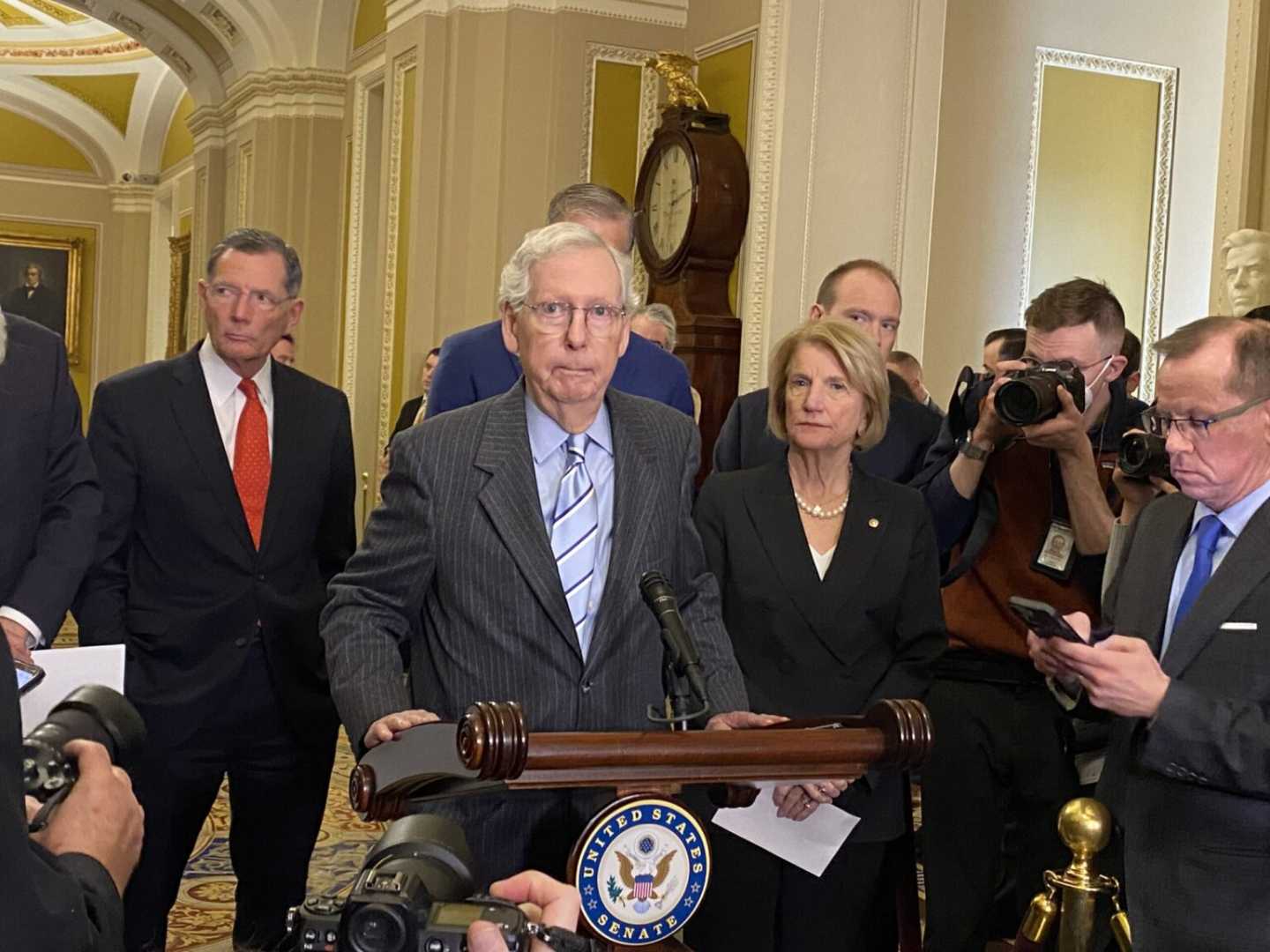Politics
GOP Senators Express Concerns Over Trump’s Foreign Aid Freeze

WASHINGTON, D.C. — A group of Republican senators, alongside their Democratic counterparts, have raised alarms regarding the Trump administration’s freeze on foreign aid and the restructuring of USAID. In a letter addressed to Sen. Marco Rubio earlier this month, the senators asserted that the State Department’s actions may violate legal requirements mandating congressional consultation and notification.
The Senate Appropriations Committee members expressed their concerns in correspondence obtained by The Washington Post. They are pushing for Rubio to defend the administration’s decision in an upcoming Capitol Hill hearing, marking one of the first significant GOP responses to the administration’s encroachment on congressional powers.
The foreign aid freeze, instigated by the Trump administration and the U.S. DOGE Service led by billionaire Elon Musk, has frozen hundreds of billions in federal spending. This controversial action has generated lawsuits but little public backlash from GOP lawmakers. While the Supreme Court has recently allowed the administration to delay the resumption of nearly $2 billion in foreign aid payments, dissent among Republican senators is becoming more evident.
Senators Lindsey Graham (R-S.C.), Lisa Murkowski (R-Alaska), and Susan Collins (R-Maine), alongside their Democratic colleagues, are particularly concerned that Rubio and the State Department have not adequately communicated with Congress regarding the impacts of their decisions on USAID and foreign aid programs. “As your former colleagues, we look forward to hearing from you and working with you in your new role,” the senators wrote.
While Graham aligns himself with Trump on the need for USAID reform, he has voiced concerns about the administration’s approach. “I am for helping starving people, I am for clean water… But USAID is a victim of their own excesses,” he noted at a recent news conference.
The letter also highlighted troubling reports of humanitarian aid stagnating due to the bureaucratic changes, with essential supplies at risk of spoilage and critical medicine stuck in warehouses. The senators requested clarification from Rubio on which programs were halted and which received waivers.
In response to the ongoing crisis, they urged the exemption of national security programs and cautioned that adversaries like China, Russia, and Iran could take advantage of the situation. “We are alarmed by reports that food is at risk of rotting in ports…,” they commented.
Despite the stress surrounding the foreign aid freeze, Graham communicated a willingness to support necessary reforms as long as they do not hinder essential humanitarian efforts. “When a waiver is granted, I want to know what happens to the funding,” he stated, emphasizing a perceived disconnect between waivers granted and the actual flow of funds.
The absence of a response from Rubio has led Graham and Sen. Brian Schatz (D-Hawaii) to reiterate their request for a briefing. They cautioned against “irreversible and costly actions” that could jeopardize essential programs during the review period.
As the administration positions itself to reshape America’s foreign assistance strategy, lawmakers are wary of the implications of this overhaul and are calling for transparency and accountability during this transition period.












